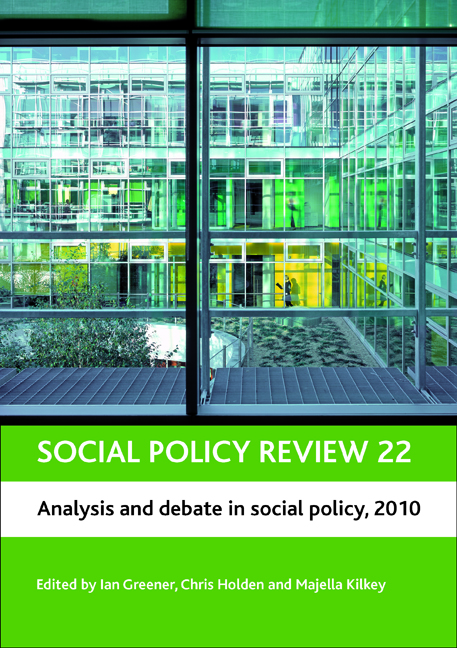four - Towards a social democratic pension system? Assessing the significance of the 2007 and 2008 Pensions Acts
Published online by Cambridge University Press: 01 September 2022
Summary
Pension policy over the last few years has been dominated by the debates and legislative agenda that have followed the publication of the Pensions Commission's final report in 2005. Established in 2002 to ‘report on how the current voluntarist approach [to private savings] is developing’, the Pensions Commission interpreted its brief broadly to produce a wide range of recommendations for both the public and non-state pension sectors (2005, pp 18-22). These will be outlined in more detail below, but the most noteworthy were the suggestion that the basic state pension (BSP) should return to uprating in line with earnings from 2010 and that entitlement should shift to a residence basis for future accruals. In the non-state sector, the Commission recommended the establishment of a National Pensions Saving Scheme (NPSS) to which all employees not already covered by adequate occupational provision would be auto-enrolled on the basis of contributions from their employer (3% of pensionable earnings), themselves (4%) and the state (1%). After intense negotiations in Whitehall between HM Treasury and the Department for Work and Pensions (DWP), the government accepted many of the Commission's recommendations in two White Papers (DWP, 2006a, 2006b), which were then implemented in the 2007 and 2008 Pensions Acts. Earnings uprating was accepted but from 2012 at the earliest, rather than 2010, and a delivery authority was put in place to establish an NPSS, rebranded as ‘Personal Accounts’, by 2012, with the 2008 Act legislating for the phased introduction of quasi-employer compulsion from this date (DWP, 2006b). However, the government rejected residency-based entitlement for state provision. Instead, a range of measures was taken to ease access to basic state provision for carers.
Assessments of this reform have focused, at one level, on its individual components, most particularly those areas where the government went less far than the recommendations of the Pensions Commission (see, for example, Pemberton et al, 2006; Price, 2007; Pemberton, 2010), but underlying much of this analysis is the more general conclusion that because of the individual limitations of the reform the Acts continue to support the existing liberal policy paradigm, that they have largely failed to give the British pension system a more social democratic character.
- Type
- Chapter
- Information
- Social Policy Review 22Analysis and Debate in Social Policy, 2010, pp. 71 - 96Publisher: Bristol University PressPrint publication year: 2010



